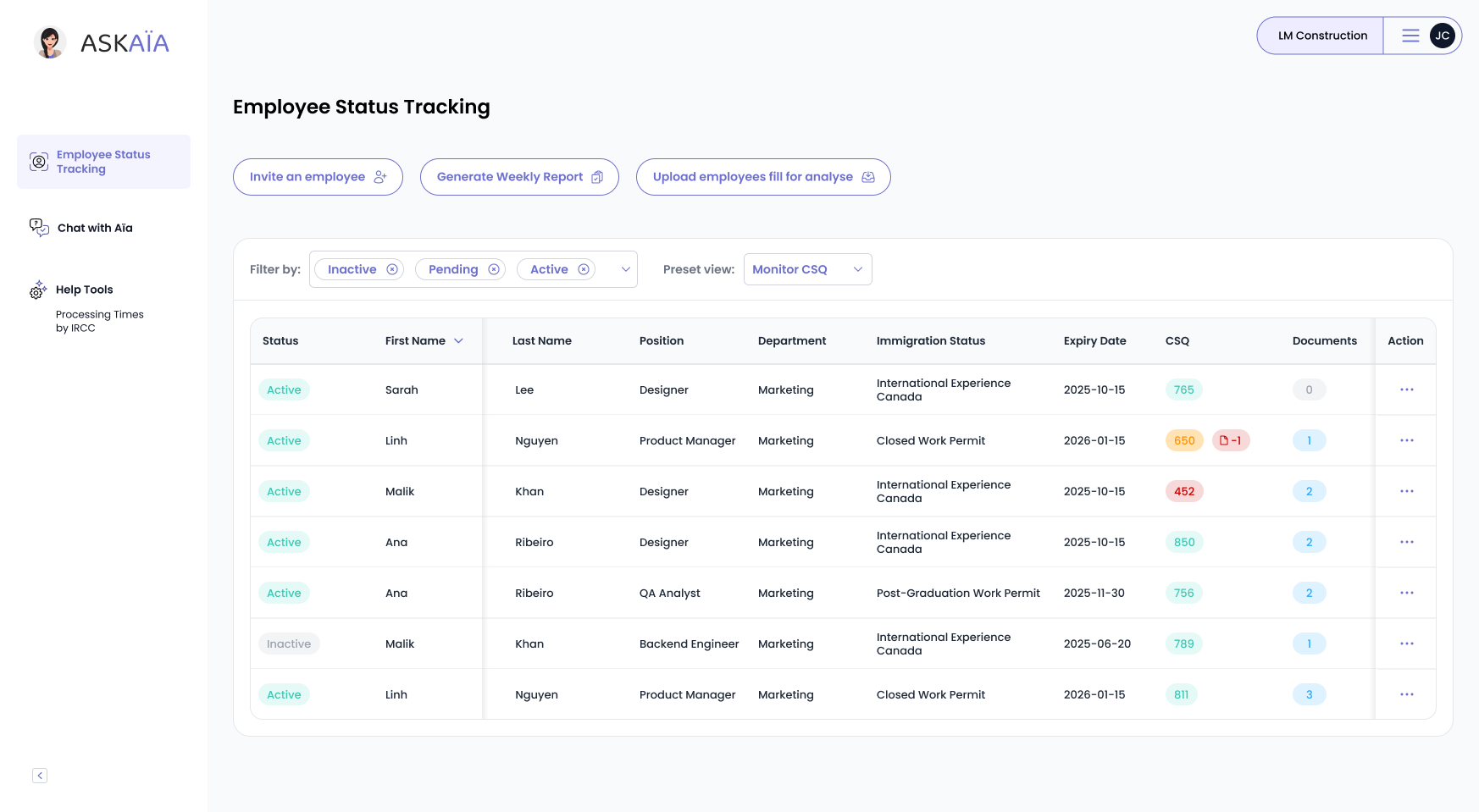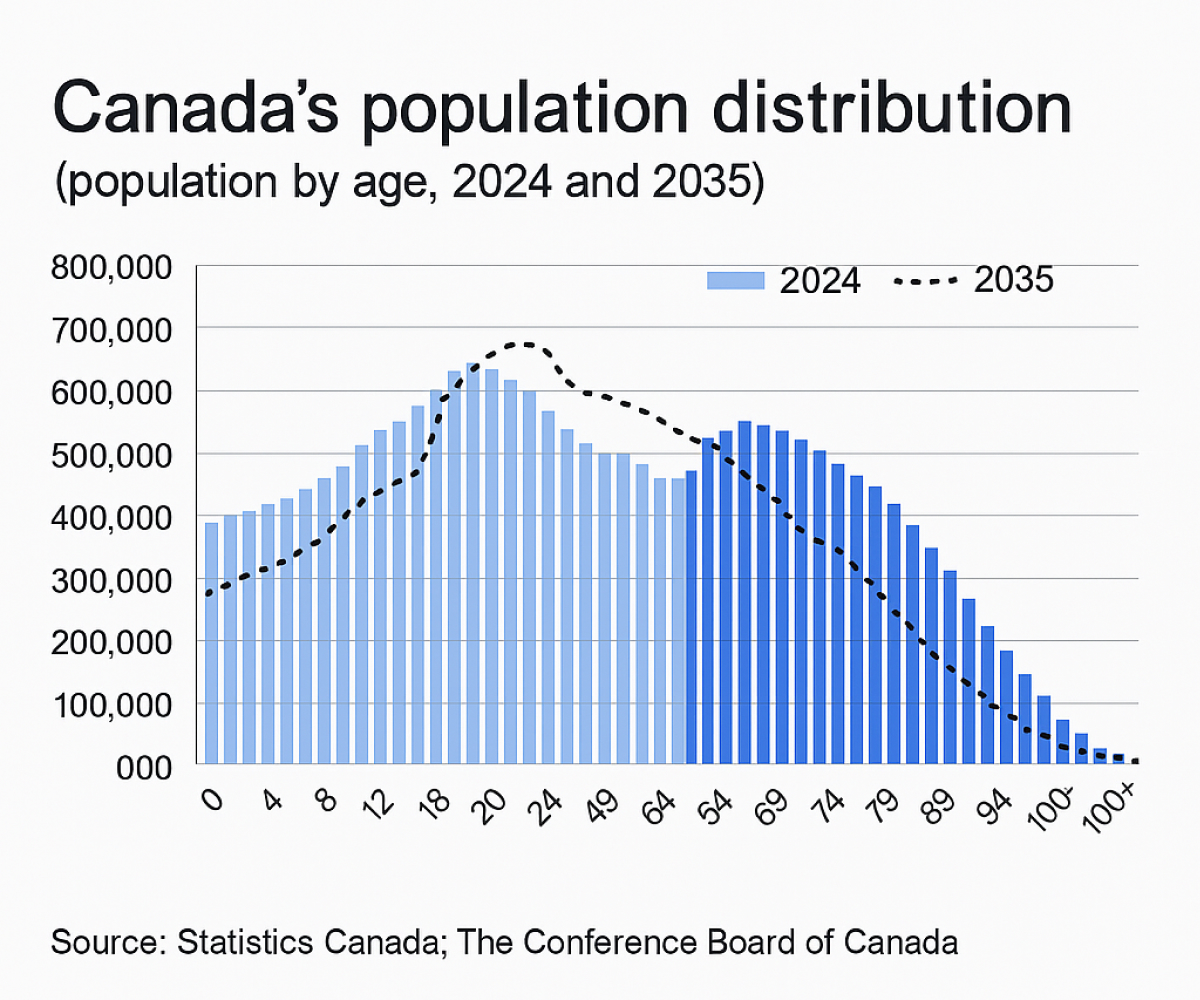New Brunswick is urgently increasing its immigration targets in 2025, aiming to welcome 7,500 new permanent residents, a 29% rise from the previous year. With job shortages mounting and a rapidly aging population, the province sees immigration as a vital lifeline for long-term growth and stability.
This article explains what these changes mean for immigrants, including job opportunities, immigration pathways, and how to take advantage of the province’s expanding programs.
What you will find in this article
- Who Can Apply to Immigrate to New Brunswick?
- Why New Brunswick Is Raising Immigration Targets
- Opportunities and Challenges for Newcomers
- How Immigration Programs Will Be Affected
- How Immigrants Can Benefit from This Shift
- How Long Does the Immigration Process Take?
- How Does New Brunswick Compare with Other Provinces?
Who Can Apply to Immigrate to New Brunswick?
New Brunswick is actively seeking a wide range of candidates to meet its growing immigration targets. These include:
- Skilled Workers: Particularly in health care, trades, hospitality, and construction.
- International Students: Graduates from Canadian institutions who have job offers in NB.
- French Speakers: Those with CLB/NCLC 7+ French proficiency.
- Applicants with Job Offers: Especially from employers designated under the AIP or NBPNP.
Why New Brunswick Is Raising Immigration Targets
New Brunswick’s economy is under pressure from severe labour shortages. In 2024, only 5,800 newcomers settled in the province, far below what’s needed to support health care, hospitality, and construction sectors.
To address this, the government will admit 7,500 permanent residents in 2025 and scale up to 10,000 by 2027. Officials emphasize that immigration is the only viable solution to reverse demographic decline and maintain public services.
Opportunities and Challenges for Newcomers
For immigrants, this expansion offers real opportunities. Skilled workers, international students, and French speakers may now have a better shot at nomination under the New Brunswick Provincial Nominee Program (NBPNP) or the Atlantic Immigration Program (AIP), a federal permanent residence stream designed for skilled workers and international graduates with job offers in Atlantic Canada. The AIP is employer-driven, meaning applicants must secure a job from a designated employer in New Brunswick or one of the other Atlantic provinces. In 2023, more than 2,500 newcomers were admitted to New Brunswick under this program, and numbers are expected to rise as the province scales its targets.
However, challenges remain. Housing availability is tight, the Canada Mortgage and Housing Corporation reported a vacancy rate of just 1.3% in Moncton in 2024, far below the national average. At the same time, federal immigration processing delays persist, with permanent residence applications under provincial programs taking up to 23 months in some cases, according to IRCC data. Immigration lawyers warn that provincial ambition must be matched with infrastructure and support systems.
How Immigration Programs Will Be Affected
With these new targets, New Brunswick is likely to push for:
- Increased provincial allocations from Ottawa
- Faster nomination processing under NBPNP and AIP
- Expanded use of federal tools like the Rural and Northern Immigration Pilot (RNIP)
- French-speaking immigrants and skilled workers in high-demand sectors may receive prioritization.
Employers are expected to play a key role, especially in designating jobs under the AIP.
How Immigrants Can Benefit from This Shift
To make the most of these changes:
- Apply through NBPNP or AIP, especially if you have a job offer in NB
- Highlight French-language skills, which are in high demand, particularly those who can demonstrate proficiency at levels CLB/NCLC 7 or higher. Many programs give priority to candidates who submit valid test results from approved language exams such as TEF Canada or TCF Canada.
- Target sectors facing shortages: including health care, trades, and food services
- Monitor housing support programs, as some municipalities may offer assistance with integration. For example, the City of Moncton has partnered with local agencies to provide temporary housing for newcomers, while Fredericton offers orientation services and rent support for newly arrived permanent residents.
- Staying informed through provincial announcements and trusted legal or advisory services is crucial.
How Long Does the Immigration Process Take?
Timelines vary depending on the program and applicant profile. Based on current IRCC data:
- NBPNP nomination: 3 to 6 months
- PR application through AIP or NBPNP: 12 to 23 months
Applicants should plan for at least 15–24 months from job offer to final permanent residence approval, and ensure all documents are complete and valid before submission.
How Does New Brunswick Compare with Other Provinces?
| Province | PR Processing Time | Cost of Living | Job Market Demand | French Advantage |
| New Brunswick | 15–24 months | Low | High in trades, health | Yes |
| Ontario | 18–26 months | High | Strong but competitive | Moderate |
| Quebec | 20–30 months | Moderate | High in health, tech | Strong (mandatory) |
| British Columbia | 16–25 months | Very High | Strong in tech, services | Low |
New Brunswick offers a more accessible pathway to PR with lower living costs and strong demand in essential sectors.
Not sure how these changes affect you? Take a free assessment with AskAïa to explore your best immigration options, tailored to New Brunswick’s latest priorities.

Let’s get your demo started
Book a demo
You May Also Like
These Related Stories

Canada Starts Refunding Immigration Fees for Missed Processing Times
Long processing times have long frustrated immigrants in Canada. A little-known policy now offers partial refunds when IRCC exceeds its own service st …

Colombians Working in Canada: LMIA Exempt Jobs You Should Know
For many Colombians, settling in Canada represents a major opportunity, but also a challenge filled with legal procedures and complex requirements. Fo …

Canada Counts on Newcomers: 2025 Economic Outlook Fully Unveiled
Is immigration helping or hurting Canada’s economy? At the 2025 Economic Outlook event hosted by Wilfrid Laurier University, experts offered clear ans …
